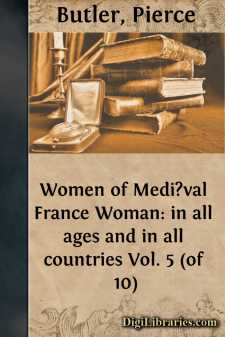Categories
- Antiques & Collectibles 13
- Architecture 36
- Art 48
- Bibles 22
- Biography & Autobiography 816
- Body, Mind & Spirit 145
- Business & Economics 28
- Children's Books 17
- Children's Fiction 14
- Computers 4
- Cooking 94
- Crafts & Hobbies 4
- Drama 346
- Education 58
- Family & Relationships 59
- Fiction 11834
- Foreign Language Study 3
- Games 19
- Gardening 17
- Health & Fitness 34
- History 1378
- House & Home 1
- Humor 147
- Juvenile Fiction 1873
- Juvenile Nonfiction 202
- Language Arts & Disciplines 89
- Law 16
- Literary Collections 686
- Literary Criticism 179
- Mathematics 13
- Medical 41
- Music 40
- Nature 179
- Non-Classifiable 1768
- Performing Arts 7
- Periodicals 1453
- Philosophy 66
- Photography 2
- Poetry 897
- Political Science 203
- Psychology 45
- Reference 154
- Religion 516
- Science 126
- Self-Help 85
- Social Science 82
- Sports & Recreation 34
- Study Aids 3
- Technology & Engineering 59
- Transportation 23
- Travel 463
- True Crime 29
Our website is made possible by displaying online advertisements to our visitors.
Please consider supporting us by disabling your ad blocker.
Women of Medi?val France Woman: in all ages and in all countries Vol. 5 (of 10)
by: Pierce Butler
Description:
Excerpt
CHAPTER I
In the older conception, history was a record chiefly of battles, of intrigues, of wicked deeds; it was true that the evil that men did lived after them; at least, the even tenor of their ways was passed over without notice by the chroniclers, and only a salient point, a great battle or a great crime, attracted attention. If little but deeds of violence is recorded about men, still less notice does the average mediaeval chronicler condescend to bestow upon women. History has been unjust to women, and this is preeminently the case in the history of France at the period with which we are to begin in this chapter. The age of the good King Robert was an age of warfare; the basic principle of feudalism was military service; and what position could women occupy in a social system dependent upon force? The general attitude toward women is hinted at by the very fact that, in the great war epic of Roland, the love story, upon which a modern poet would have laid much stress, is entirely subordinated; it is the hero and his marvellous valor that the poet keeps before us. The heroine, if she can be so called, the sister of Roland's brother in arms, Oliver, is not once named by the hero. In the midst of the battle, when Roland proposes to sound his horn to summon Charlemagne to his aid, Oliver reproaches him:
"Par ceste meie barbe!
Se puis vedeir ma gente soror Aide,
Vos ne gerrez jamais entre sa brace."
(By my beard! if I live to see my sister, the beautiful Aude, you shall never be her husband!) After this she is mentioned no more until Charlemagne returns to Aix with the sad news of Roland's heroic death. Then comes to him la belle Aude to ask where is her betrothed Roland. "Thou askest me for one who is dead," says Charlemagne; "but I will give thee a better man, my son and heir, Louis." "I understand thee not," replies Aude. "God forbid that I should survive Roland!" She falls fainting at the emperor's feet, and when he lifts her up he finds her dead. Then he calls four countesses, who bear the body into a convent and inter it, with great pomp, near the altar. (II. 3705-3731.) La belle Aude has fulfilled her mission when she dies for love of Roland. If she had been on the battlefield, she might have dressed Roland's wounds, since the rôle of physician and nurse was frequently played by women. Otherwise there is little use for women in an age of warfare, and so we shall find most of the good women passed over in silence, and only those of more masculine traits prominent in the earlier parts of our story.
Before we can begin the story of those women whose names have come down to us from the France of the year 1000, it is necessary to have some sort of understanding of the social, if not of the political, condition of France, to learn what sort of influences environed and moulded the lives of women in those days. Such a survey of society, indeed, will be useful for the whole period of the Middle Ages, and will serve as a background for the figures of the women we shall have to consider, whether they be saints or sinners....


